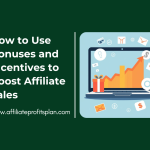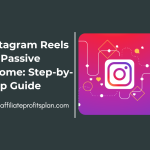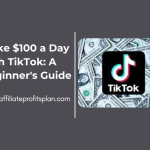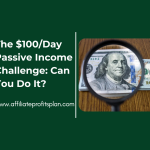Welcome to my article “Affiliate Marketing and Blogging: Can You Succeed Without SEO?” If you’ve spent any time dabbling in affiliate marketing or blogging, you’ve probably heard the golden mantra: “SEO is king.” And sure, it sounds glamorous—ranking on the first page of Google, basking in endless organic traffic, and watching commissions roll in while you sip your morning coffee. But let’s be honest: SEO can feel like that high-maintenance friend who demands all your attention and still ghosted you at the last party (thanks, algorithm updates).
For starters, mastering SEO is no walk in the park. It’s more like trying to win a chess match against a computer that keeps changing the rules. Keywords, backlinks, meta tags, core web vitals—what even are those, and why do they sound like medical diagnoses? Plus, let’s not forget the competition. Every niche has dozens (if not hundreds) of bloggers all vying for the same keywords, each armed with their best “ultimate guides” and 2,000-word essays on the same topic.
So, here’s the million-dollar question: Can you actually make it as an affiliate marketer or blogger without playing the SEO game? The short answer is: yes—but it’s going to take some creativity, grit, and a willingness to explore other traffic-driving methods. In this blog, we’ll dive into why SEO became the kingpin of blogging and affiliate marketing, the reasons it might not work for everyone, and, most importantly, the alternative paths you can take to build a successful business without bowing to the SEO gods.
Ready to break free from Google’s reign and chart your own course? Let’s get started—and don’t worry, no meta tags required.
Access Our Proven Tested Formula for $50-$100 Daily Income – Watch This FREE Video >>

Why SEO Dominates Affiliate Marketing and Blogging
If affiliate marketing and blogging were a high school prom, SEO would be the popular kid who shows up in a shiny tux, hogs the spotlight, and gets crowned king. Why? Because it’s been the reigning strategy for driving free, sustainable traffic for as long as the internet has existed. But let’s dig a little deeper into why SEO holds so much power in this digital ecosystem.
First off, SEO (Search Engine Optimization, in case you’ve been living under a rock—or just ignoring the acronyms) taps into the endless goldmine of search engine traffic. Think about it: every second, Google processes over 99,000 searches. People are out there looking for answers to everything from “best gaming laptops under $1,000” to “how to cook spaghetti without a pot” (don’t ask). If your blog post happens to pop up at the top of the search results, that’s free traffic from people actively looking for what you’re offering. Cha-ching!
But SEO isn’t just about getting eyeballs on your blog. It’s about targeted eyeballs. Unlike social media, where you’re basically waving at random strangers in the hopes someone will care about your affiliate links, SEO puts you in front of people with credit cards in hand, ready to buy. It’s like showing up at the party where everyone’s already talking about your niche—instant relevance.
Now, here’s where SEO flexes even harder. Once you crack the code and rank for those sweet, sweet keywords, it’s a gift that keeps on giving. A well-optimized blog post can generate traffic for months, even years. That’s why people treat SEO like the holy grail: a one-time investment of effort that pays off long after you’ve moved on to your next affiliate project.
Of course, it’s not all sunshine and Google rankings. SEO is like trying to impress a very picky boss who never tells you exactly what they want. Algorithms change, competition is fierce, and it takes time to see results. But for those who are patient (or just really good at guessing what Google likes), SEO remains the undisputed heavyweight champion of affiliate marketing and blogging.
Still, as we’ll explore later, just because SEO is the reigning monarch doesn’t mean it’s the only path to success. There’s a whole world of alternatives for those who prefer to dance to a different tune—or just skip the prom altogether. Stay tuned!
The Downsides of Relying Solely on SEO
Ah, SEO. The digital darling of affiliate marketers and bloggers everywhere. But while SEO might look like the perfect partner on paper—promising steady traffic and long-term results—it can also be a bit of a diva. Relying solely on SEO is like putting all your eggs in one fragile basket and then handing it over to a moody toddler named Google. Let’s talk about why this strategy isn’t always as dreamy as it sounds.
1. The Waiting Game Is Real
If you’re the kind of person who plants a seed and expects a tree the next day, SEO is not your friend. Getting ranked on search engines takes time—sometimes months, sometimes years. You’ll spend endless hours perfecting your blog post, sprinkling in keywords, building backlinks, and optimizing your site speed, only to stare at your analytics like, “Where’s the traffic, Google?” It’s the digital equivalent of watching paint dry—except the paint might peel off the wall if an algorithm update decides it doesn’t like your keywords anymore.
2. Algorithm Anxiety
Speaking of algorithms, they’re the SEO world’s equivalent of weather forecasts—unpredictable and rarely in your favor. One day, your blog post is sitting pretty on Page 1; the next, it’s buried under a pile of competitor content because Google rolled out an update. (Looking at you, Core Web Vitals.) When you’re entirely dependent on SEO, these changes can feel like a rug being pulled out from under you—except the rug is your income stream.
3. Fierce Competition
Let’s not forget the sheer amount of competition out there. Whatever niche you’re in—fitness, tech, beauty, or cat toys—there are thousands of other bloggers targeting the same keywords. And many of them have been at it longer, have bigger budgets, and, let’s be honest, probably have fancier backlinks. Breaking into Page 1 can feel like trying to win a marathon where half the runners started the race two years ago.
4. It’s a Full-Time Job (Without the Perks)
SEO isn’t a “set it and forget it” strategy—it’s a full-time job disguised as a marketing tactic. You’ll need to constantly tweak your content, track rankings, monitor analytics, and stay on top of the latest algorithm updates. And unlike a traditional job, there’s no steady paycheck while you’re waiting for all that effort to pay off. It’s a lot of hustle for a “maybe.”
5. Over-Reliance on a Single Traffic Source
Here’s the kicker: when you put all your faith in SEO, you’re essentially handing over control of your traffic to Google. If something goes wrong—an algorithm change, a penalty, or even just a shift in user behavior—you’re left scrambling to rebuild. It’s like owning a store that only gets customers from one road, and then the road gets closed for construction. Not ideal.
Access Our Proven Tested Formula for $50-$100 Daily Income – Watch This FREE Video >>
So, while SEO can be a powerful tool, leaning on it entirely is like trying to balance a chair on one leg—it might work for a while, but eventually, things get wobbly. That’s why it’s important to diversify your traffic sources, explore other strategies, and keep SEO as part of your toolkit—not the whole toolbox. And let’s be real: life’s too short to let a search engine dictate your blogging dreams.
Alternative Traffic Strategies for Affiliate Marketing Without SEO
So, SEO isn’t your thing—or maybe it’s just not working as quickly as you’d like. Don’t worry, you’re not doomed to obscurity or begging Google for mercy. The internet is like a buffet: if SEO is the roast beef carving station, there are still plenty of other dishes to pile onto your plate. Let’s dive into some alternative traffic strategies that don’t require you to worship at the altar of search engine optimization.
1. Social Media Magic
Why wait for people to stumble across your blog when you can bring your content straight to them? Platforms like Instagram, TikTok, and Facebook are bustling hubs of potential traffic. Create shareable, engaging content like quick product demos, relatable memes, or even viral challenges (yes, your affiliate links can dance too). And don’t underestimate the power of DMs and comments to build connections.
For longer-form content, platforms like LinkedIn or even Twitter (or X, if you’re feeling edgy) can help you establish authority and drive clicks. Just remember, social media thrives on personality, so don’t be afraid to let your quirks shine—people buy from people they trust, not robots who post bland captions.
2. Email Marketing: Your Secret Weapon
They say the money’s in the list, and they’re not wrong. Building an email list lets you talk directly to your audience—no algorithms, no guesswork, just good ol’ inbox power. Create a valuable lead magnet, like a free guide or checklist, to entice people to sign up.
Once they’re on your list, nurture them with value-packed emails, pepper in some affiliate product recommendations, and voilà! Instant traffic at the click of a “send” button. Bonus points for using snappy subject lines that scream “open me!” and email copy that feels more like a conversation with a friend than a sales pitch.
3. Pinterest: The Underrated Traffic Goldmine
Pinterest isn’t just for wedding inspiration and DIY crafts—it’s a visual search engine with serious traffic potential. Create eye-catching pins that link back to your blog posts or affiliate pages, and let Pinterest’s algorithm do the rest. The beauty of Pinterest? Pins have a longer lifespan than social media posts, meaning they can drive traffic for months or even years.
Pro tip: Use keywords strategically in your pin descriptions. (Yes, we know this technically brushes against SEO, but it’s the fun kind, promise.)
4. Collaborations and Partnerships
Teamwork makes the dream work, even in affiliate marketing. Partnering with influencers, other bloggers, or niche brands can be a fantastic way to tap into their audiences. For example, guest blogging on a popular site can bring a flood of traffic to your affiliate links without you having to worry about ranking.
Likewise, sponsoring an influencer’s content or co-creating a product review can expose your affiliate offers to a whole new crowd. Just make sure it’s a mutually beneficial relationship—nobody likes the person who shows up to the potluck empty-handed.
5. Paid Ads (Without Breaking the Bank)
If you’ve got a bit of a budget to play with, paid ads can be a shortcut to traffic success. Platforms like Facebook, Instagram, and Google Ads offer advanced targeting tools that let you zero in on your ideal audience. The trick is to start small, test what works, and scale from there.
Oh, and let’s not forget about native ads and sponsored content. Platforms like Taboola and Outbrain can put your blog or affiliate products in front of readers on major news sites. It’s like a VIP pass to traffic land—without the SEO drama.
6. Forums, Communities, and Quora
Yes, forums still exist, and they’re alive and kicking. Whether it’s Reddit, niche-specific forums, or Q&A platforms like Quora, these communities are ripe with people asking questions and seeking solutions. By becoming an active, helpful participant, you can subtly direct people to your blog or affiliate offers.
The key here is to add value first. Nobody likes the person who barges in and screams, “Buy my stuff!” But if you offer genuine advice and recommendations, people will naturally click through to learn more.
The Importance of Audience Engagement and Building Trust
If affiliate marketing were a relationship, your audience would be your significant other. And like any good relationship, it’s not about grand gestures or flashy promises—it’s about trust, communication, and showing up consistently. You can’t just slap a link in their face and expect them to click like it’s a “Buy One Get One Free” sale. Nope, you’ve got to woo them, engage them, and most importantly, make them trust you. Let’s talk about why audience engagement and trust are the secret sauce for your affiliate marketing success.
1. Trust Is the Currency of Affiliate Marketing
Imagine you walk into a store and the salesperson immediately starts pushing a product you’ve never heard of, claiming it’ll change your life. Would you trust them? Probably not. Now, imagine a friend recommending that same product, sharing their personal experience and why it worked for them. You’re way more likely to whip out your wallet, right?
Access Our Proven Tested Formula for $50-$100 Daily Income – Watch This FREE Video >>
That’s exactly how trust works in affiliate marketing. Your audience isn’t just a group of faceless clicks—they’re real people looking for guidance. If they trust you, they’ll believe in your recommendations. Without trust, you’re just another stranger shouting into the void of the internet.
2. Engagement Is Your Superpower
Think of audience engagement as the foundation for building trust. The more you interact with your audience, the more they see you as a person rather than a marketer. Responding to comments, answering questions, and sharing your own experiences helps foster a sense of connection. And when people feel connected, they’re more likely to stick around—and buy.
Engagement also gives you valuable insights into what your audience actually wants. Are they asking for product comparisons? Tutorials? Honest reviews? By listening and responding, you can tailor your content to meet their needs, making them feel seen and valued.
3. People Buy From People They Relate To
Here’s a secret: you don’t have to be an expert to succeed in affiliate marketing—you just need to be relatable. Your audience isn’t expecting you to sound like a walking encyclopedia. They want someone who gets them, who’s been in their shoes, and who can guide them in a way that feels genuine.
Sharing personal stories, struggles, and even failures makes you more human. For example, if you’re promoting a fitness product, talk about how it helped you get back into shape after years of struggling with inconsistent workouts. People love authenticity, and it’s a powerful way to build trust and engagement.
4. Consistency Builds Relationships
Trust doesn’t happen overnight—it’s earned over time. That’s why consistency is key. Show up regularly with valuable content, whether it’s blog posts, social media updates, or email newsletters. When your audience knows they can rely on you, they’ll keep coming back for more.
But let’s be clear: consistency doesn’t mean spamming them with affiliate links every other day. It means creating a balance between helpful, entertaining content and the occasional recommendation. Think of it as building a friendship. Nobody likes the friend who only calls when they need something.
5. Honesty Over Hype
You might be tempted to oversell an affiliate product to boost your commissions, but resist the urge. People can smell a sales pitch from a mile away, and nothing kills trust faster than exaggeration. If a product has flaws, be honest about them. Highlighting both the pros and cons shows that you’re putting your audience’s needs first, not your bottom line.
Honesty doesn’t mean being boring—it just means being real. Instead of saying, “This product will change your life forever!” try something like, “This product worked really well for me in X situation, but here’s what you should consider before buying.” Your audience will appreciate the transparency and reward you with their trust.
6. Engagement Is a Two-Way Street
Remember, audience engagement isn’t just about you talking at your audience—it’s about having a conversation with them. Ask for their opinions, encourage feedback, and make them feel like part of your journey. Polls, Q&A sessions, and interactive content (like Instagram Stories or live streams) are great ways to foster this two-way dialogue.
When your audience feels heard, they’re more likely to trust your recommendations. It’s like they’re thinking, “This person actually cares about what I need, not just what they’re selling.”
Can You Truly Succeed Without SEO?
Let’s be honest: SEO feels like that overachiever in high school who aced every class, led the debate team, and still had time to volunteer. It’s everywhere, and everyone swears by it. But do you have to follow the SEO rulebook to succeed in affiliate marketing and blogging? Or can you go rogue and still make it big? Let’s explore whether it’s possible to climb the affiliate marketing ladder without bowing down to the almighty Google gods.
1. The Odds Are… Complicated
Let’s start with the hard truth: SEO is popular for a reason. It’s like planting seeds in a fertile field—the more effort you put into it, the more likely you are to reap a sustainable harvest of organic traffic. Without it, you’re essentially working with rocky soil, and the path to success can feel like pushing a boulder uphill.
But here’s the kicker: harder doesn’t mean impossible. There are plenty of success stories out there from bloggers and affiliate marketers who’ve found workarounds. They’re the mavericks, the ones who didn’t want to spend hours perfecting meta descriptions or obsessing over backlinks. And yes, they’ve proven that you can make it happen without SEO—it just takes a different strategy and a lot of grit.
2. Your Success Will Depend on Your Alternatives
The big question isn’t whether you can succeed without SEO but how you’re driving traffic in its place. Without search engines funneling people to your site, you’ll need a well-thought-out game plan, and it can’t be, “I’ll just hope for the best.”
Social media, email marketing, paid ads, and partnerships all become your best friends here. They can generate traffic, build your audience, and help you create the visibility you need to thrive. But—and it’s a big but—these strategies usually require a higher level of creativity, investment, or ongoing effort compared to SEO. Think of SEO as the tortoise and alternative strategies as the hare: both can win the race, but their journeys look very different.
3. Your Niche Matters (A Lot)
Whether you can skip SEO depends heavily on your niche. If you’re in a hyper-competitive space like fitness, tech gadgets, or personal finance, good luck going head-to-head with established players who dominate Google’s first page. Without SEO, you might feel like you’re shouting into a void while they’re sitting at the top, raking in traffic effortlessly.
However, if your niche is smaller or more specialized—say, vintage board games or eco-friendly pet products—you might have a fighting chance. In these cases, building a loyal community through non-SEO strategies like social media or email lists can pay off handsomely.
4. The Risks of Ignoring SEO
While it’s possible to succeed without SEO, going this route does come with risks. For one, you’re putting all your eggs in other baskets. If you rely solely on social media, for example, what happens when the algorithm changes (again) and your organic reach plummets? Or if your ad budget runs dry?
SEO, for all its quirks and frustrations, is a long-term strategy. Once your content ranks, it can continue driving traffic for months or even years without additional effort. Ignoring it completely might leave you stuck in a cycle of constantly chasing short-term wins instead of building a sustainable traffic source.
5. Success Without SEO Requires More Hustle
Let’s not sugarcoat it—succeeding without SEO isn’t for the faint of heart. You’ll need to work harder to build your audience and establish trust. Social media engagement, collaborations, paid ads, and email marketing campaigns can be time-intensive and often demand a steep learning curve.
But here’s the silver lining: if you’re willing to put in the work and think outside the box, you can make it happen. In fact, some marketers prefer this approach because it gives them more control over their traffic. They’re not at the mercy of Google’s algorithms or sudden updates. They build relationships directly with their audience, which can sometimes be more valuable than ranking on page one.
6. The Hybrid Approach: The Best of Both Worlds
Here’s a wild thought—why not dabble in both? You don’t have to be an SEO purist to benefit from its basics. Optimizing a few key pages or blog posts while focusing on alternative strategies can give you the best of both worlds. Think of it as having one foot in the SEO camp while keeping your other foot firmly planted in non-SEO tactics.
This hybrid approach lets you enjoy the long-term benefits of SEO without putting all your effort into it. At the same time, you can lean on social media, email, or paid ads to drive immediate traffic. It’s the perfect middle ground for those who want results without being chained to keyword research tools.
Conclusion: SEO or No SEO—The Affiliate Marketing Dilemma
So, can you truly succeed in affiliate marketing and blogging without SEO? The answer is a big, complicated maybe. It’s like asking if you can bake a cake without sugar. Sure, you can substitute honey, maple syrup, or some other ingredient, but it’s going to take a little more experimentation (and you’ll probably need to taste-test a few times before you nail it).
Access Our Proven Tested Formula for $50-$100 Daily Income – Watch This FREE Video >>
Here’s the deal: SEO is undeniably a powerhouse when it comes to driving consistent, long-term traffic. It’s the gift that keeps on giving—as long as Google’s algorithm doesn’t decide to rain on your parade. Ignoring SEO entirely is like opting out of the main highway and taking back roads instead. You’ll still get where you’re going, but it might take longer, and you’ll probably need to stop and ask for directions (or refill your metaphorical fuel tank with paid ads or social media boosts).
But hey, let’s not knock those scenic back roads! Plenty of affiliate marketers have found success without ever learning what a meta description is. They’ve built loyal audiences through alternative strategies like social media, email marketing, and good old-fashioned charisma. If SEO feels like a daunting mountain to climb, you’re not doomed—there’s more than one way to build an affiliate empire.
Thanks a lot for reading my article on “Affiliate Marketing and Blogging: Can You Succeed Without SEO” till the end. Hope you’ve helped. See you with another article.










